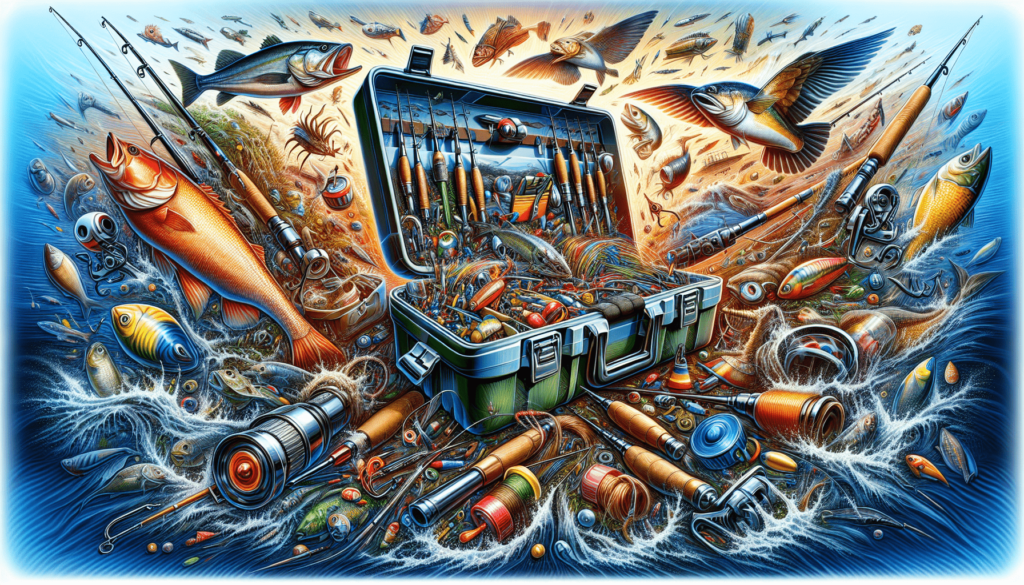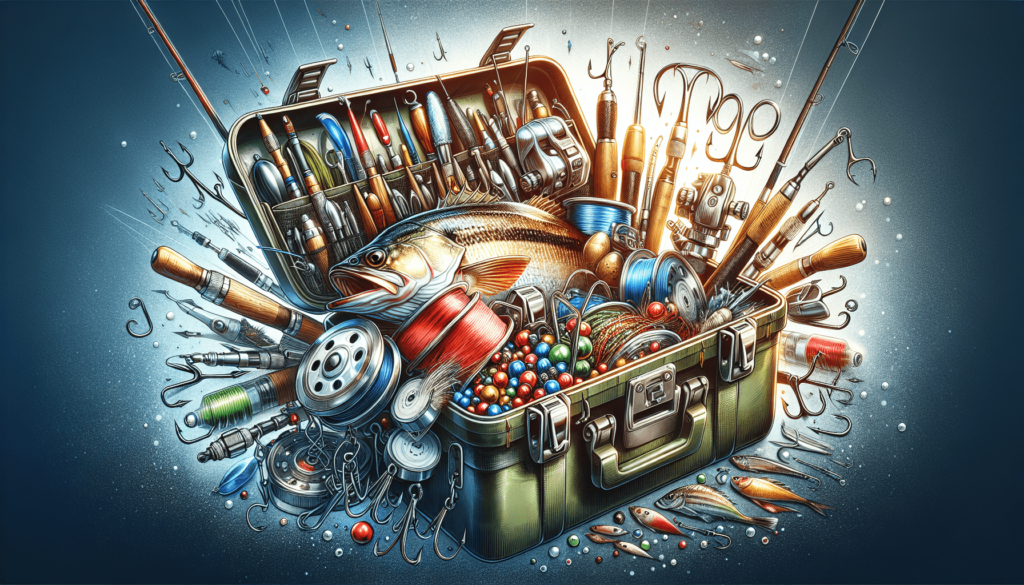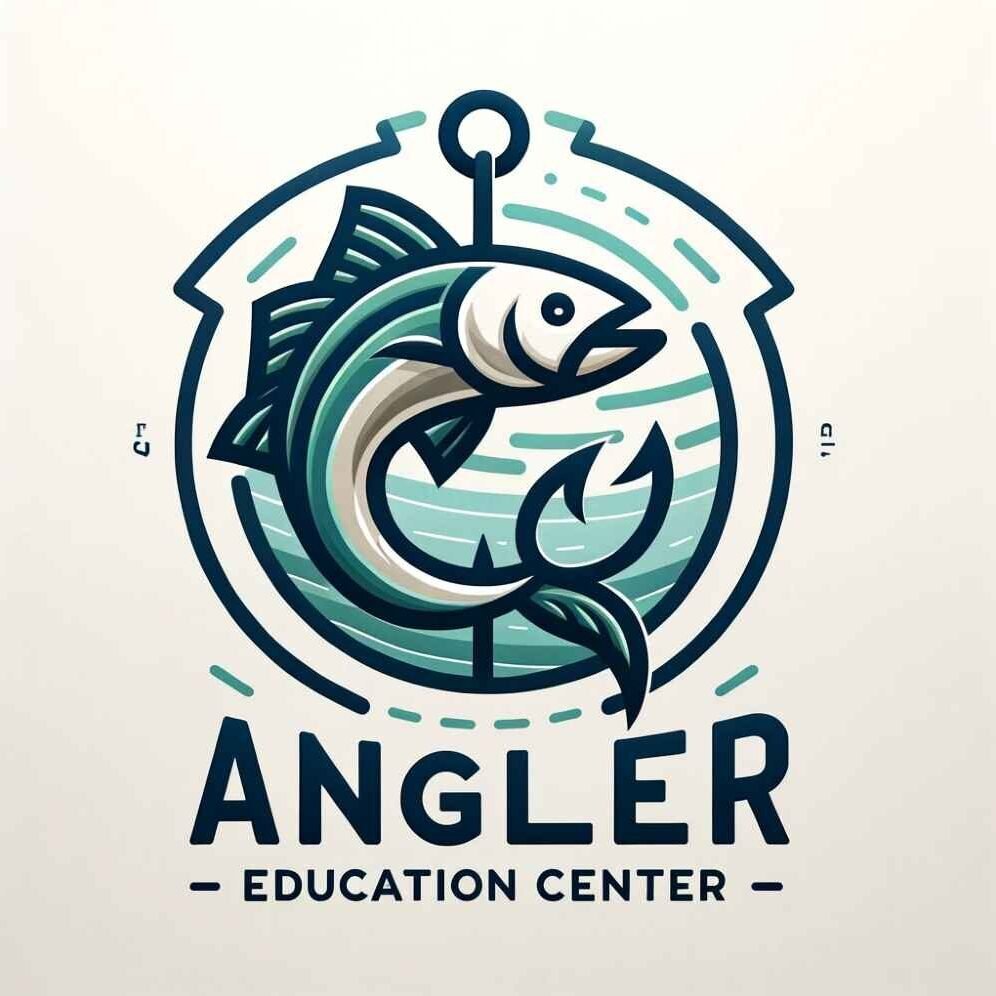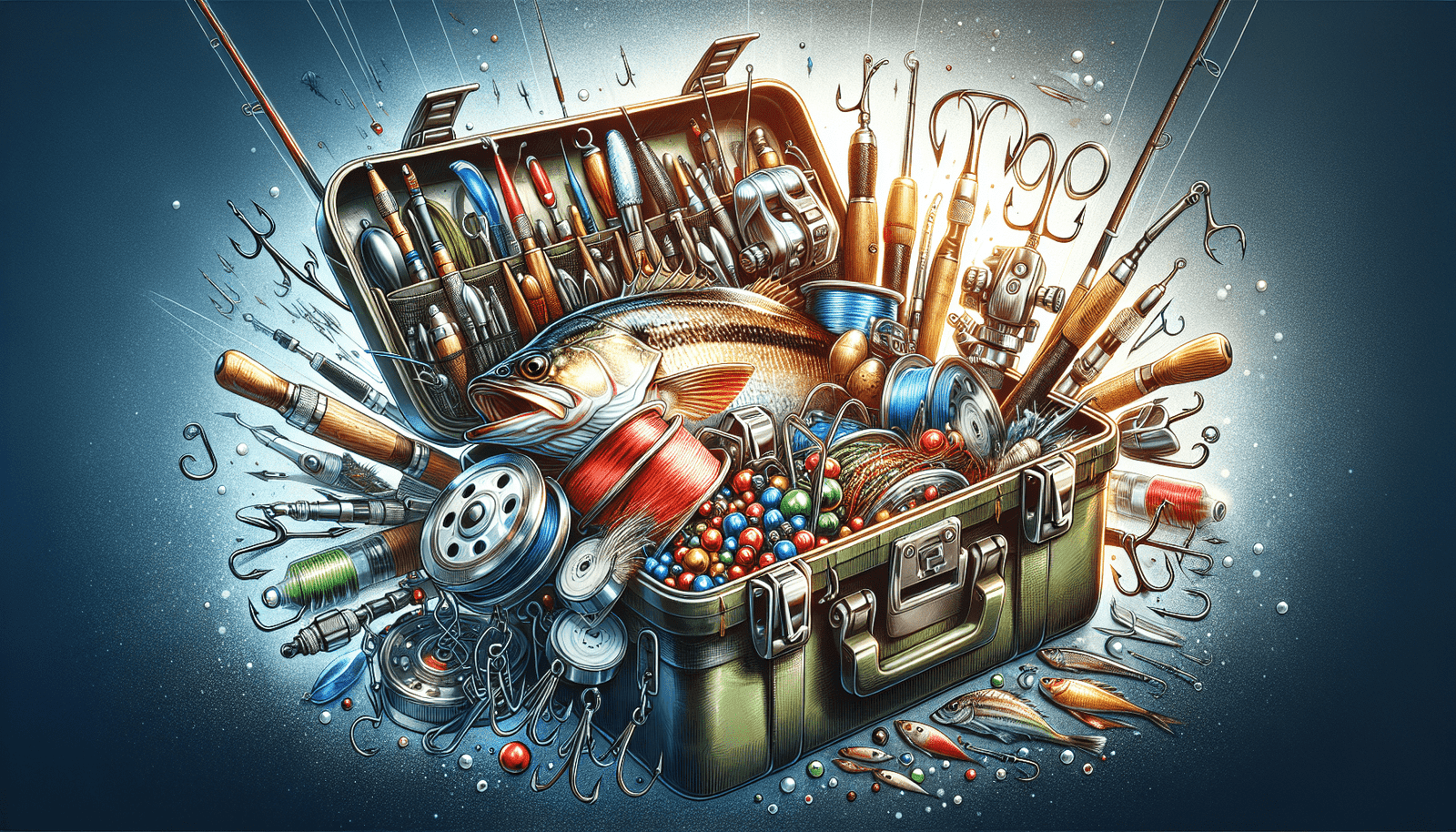If you’re ready to embark on a thrilling fishing adventure, it’s crucial to make sure you have all the essential items for a successful trip. From rods and bait to safety gear and snacks, this article provides a comprehensive checklist that will ensure you are fully prepared before setting off. So grab your gear, pack your bags, and get ready for an unforgettable fishing experience with this handy checklist.

Choosing the Location
When planning a fishing trip, one of the first things you need to consider is the location. Researching different fishing spots is crucial to finding the perfect place to cast your line. Look for areas known for their abundant fish population and good fishing conditions. Whether it’s a nearby lake, river, or even the ocean, there are countless options to choose from.
Another important factor to consider when choosing a location is the type of fish you want to catch. Different fish species thrive in different environments, so it’s important to do your research and find a spot where your target fish are known to be plentiful. This will not only increase the chances of a successful catch but also add excitement and variety to your fishing experience.
Before finalizing your choice, it’s crucial to check the local fishing regulations. Fishing rules and regulations can vary significantly from one location to another, so it’s important to familiarize yourself with the specific rules governing the area you plan to fish in. This will ensure that you’re following all the necessary guidelines and avoid any potential legal trouble.
Determining the Date and Duration
Once you’ve chosen the perfect fishing spot, it’s time to determine the date and duration of your trip. Considering the weather conditions is essential when deciding when to embark on your fishing adventure. Certain weather conditions, such as heavy rains or storms, can negatively impact fishing success. Therefore, you’ll want to choose a time when the weather is stable and favorable for fishing.
To increase your chances of catching fish, it’s also important to choose a time when fish are most active. Fish tend to be more active during specific times of the day, such as early morning or late afternoon. Researching the feeding habits of your target fish will help you identify the optimal time for your fishing trip.
The duration of your fishing trip is another aspect to consider. This will depend on various factors, including your schedule, budget, and personal preferences. Some anglers prefer short day trips, while others enjoy longer excursions. Take into account how much time you can allocate to your fishing trip and plan accordingly.
Preparing Fishing Gear
Before heading out on your fishing trip, it’s important to thoroughly check your fishing gear. Start by inspecting your fishing rods and reels. Make sure they are in good working condition, free from any damage or wear. If necessary, clean and lubricate the reels to ensure smooth operation. Check the grips and guides on your fishing rods for any signs of damage or loose fittings.
Alongside your rods and reels, you also need to inspect your fishing lines and hooks. Examine the lines for any fraying, damage, or weak spots. Replace any lines that appear worn out or damaged. Inspect the hooks for sharpness and ensure that they are not rusted or bent. Replace any hooks that are dull or damaged to ensure a successful hookset.
Gathering the right bait and lures is also crucial for a successful fishing trip. Depending on the fish species you’re targeting, you’ll need to bring the appropriate bait or lures. Live bait, such as worms or minnows, can be highly effective for enticing fish to bite. Alternatively, artificial lures come in a wide variety of shapes, sizes, and colors, mimicking the movement and appearance of natural prey. Research the preferences of your target fish and stock up on the necessary bait or lures.

Securing Accommodations
If your chosen fishing spot is located further away from your home, you’ll need to make arrangements for accommodations. Booking a nearby hotel or camping site ensures that you have a comfortable place to stay during your trip. Consider the amenities and proximity to fishing spots when choosing accommodations.
When booking a hotel, ensure that it’s in close proximity to your desired fishing location. This way, you can maximize your time on the water and minimize travel time. Additionally, check the availability and prices of different hotel options to find the best fit for your budget.
If you prefer a more adventurous and immersive fishing experience, camping near your fishing spot can be a great option. However, ensure that the camping site is located in a safe and designated area. Research the facilities available, such as restrooms and cooking areas, to make sure they meet your needs.
Organizing Transportation
Another essential aspect of planning a fishing trip is organizing transportation. Depending on the location and accessibility of your chosen fishing spot, you’ll need to decide on the mode of transportation. If it’s a nearby spot, driving in your car might be the simplest and most convenient option. However, if you plan to fish on a lake or river, you might need to consider renting a boat.
When organizing transportation, it’s important to check for parking and docking facilities. If you’re driving to your fishing spot, ensure that there is ample parking available. In the case of a boat, check if there are proper docking facilities or if you need to make any special arrangements.
Additionally, be aware of any necessary permits or licenses required for your chosen mode of transportation. Some areas may require fishing permits or boat licenses, and it’s essential to obtain these in advance to avoid any legal complications.
Pack Proper Clothing and Accessories
Packing the right clothing and accessories is crucial to ensure a comfortable and enjoyable fishing trip. Start by choosing appropriate clothing for the weather conditions you’ll be facing. If it’s hot, lightweight and breathable materials are ideal to keep you cool. In colder weather, opt for layered clothing to stay warm. Don’t forget to pack extra clothes in case of unexpected weather changes or if you plan on fishing for multiple days.
Protection from the sun is equally important. Pack sunscreen with a high SPF to shield your skin from harmful UV rays. Wearing a hat and sunglasses will help protect your face and eyes from the sun’s glare. Polarized sunglasses can be particularly useful for spotting fish beneath the water’s surface.
To keep your belongings dry and safe, invest in waterproof bags or cases. These will help protect your phone, camera, wallet, and other valuables from water damage. Additionally, consider packing a small towel to wipe off excess moisture or to use as a makeshift seating area.
Food and Drinks
Proper sustenance is essential during a fishing trip to maintain your energy levels. Plan your meals and snacks in advance, considering the duration of your trip. Pack snacks that are easy to eat and won’t spoil quickly, such as granola bars, nuts, or jerky. For longer trips, consider preparing sandwiches or other non-perishable meals to keep yourself fueled throughout the day.
Keeping your drinks cool is important, especially in warm weather. Pack a portable cooler with ample ice to store perishable items such as sandwiches, fruits, and drinks. It’s also essential to stay hydrated, so make sure to stock up on water and non-perishable drinks.
Safety Precautions
Ensuring your safety while fishing should always be a priority. Before heading out, check the weather conditions. If there are any warnings or advisories, it might be best to postpone your trip to a safer time. Storms, strong winds, or lightning can pose a significant risk, so it’s important to take these factors into account.
Packing a first aid kit and necessary medications is essential in case of any accidents or injuries. Include basic supplies such as bandages, antiseptic ointment, pain relievers, and any specific medications you may require. It’s also a good practice to inform someone of your fishing itinerary, including the location and expected duration of your trip. This way, they can alert authorities if you encounter any unforeseen difficulties.
Research Local Fishing Rules and Regulations
Before you head out on your fishing trip, take the time to research the local fishing rules and regulations. Check the specific fishing license requirements for the area you will be fishing in. Some locations might require a fishing license for both residents and non-residents, and it’s crucial to obtain the necessary permit before casting your line.
Understanding bag limits and size restrictions is also important. These regulations dictate the number of fish you can legally keep and their minimum or maximum size. Adhering to these rules helps preserve fish populations and ensures sustainable fishing practices.
Be aware of any specific fishing techniques that may be prohibited. Certain areas have restrictions on methods such as using live bait or certain types of lures. Educating yourself on these rules will help you avoid any unintentional violations and contribute to responsible fishing.
Staying Informed about the Weather
Weather conditions can play a significant role in the success and safety of your fishing trip. Stay informed about the weather forecasts before and during your trip. Check for any updates or changes that could affect your plans.
It’s important to be prepared for sudden changes in weather. Pack appropriate gear, such as rain jackets or an extra layer of clothing, to protect yourself from unexpected rain or temperature drops. Monitor the sky for signs of changing weather patterns and be prepared to take necessary precautions.
Educate yourself on the signs of dangerous weather conditions. Lightning, thunderstorms, or heavy winds can pose a significant risk when you’re out on the water. Knowing these signs and having a plan in place to seek shelter or return to land will help ensure your safety during your fishing trip.
By following these comprehensive guidelines, you’ll be well-prepared to plan a successful and enjoyable fishing trip. Keep in mind these essential checklist items when choosing a location, determining the date and duration, preparing your fishing gear, securing accommodations, organizing transportation, packing appropriate clothing and accessories, planning meals and snacks, taking safety precautions, researching local fishing rules and regulations, and staying informed about the weather. Happy fishing!


